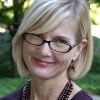In contrast to crude oil market volatility, natural gas markets currently tend to be driven by regional factors.
One indication of the difference between these markets is the correlation of daily price movement. For example, the 0.44 correlation between West Texas Intermediate (WTI) and Brent has indicated a positive connection between crude oil benchmark prices. This number is typically higher than 0.90, indicating a strong positive relationship, but recent volatility in the spread between WTI and Brent has lowered the correlation for the year.
In comparison, the daily returns for the international natural gas benchmarks US Henry Hub, Asia’s Japan/Korea LNG (JKM), and the UK National Balancing Point (NBP) show little correlation.
Comparing the crude oil benchmarks WTI and Brent to the international benchmarks for natural gas also shows little correlation; historically, natural gas contract prices were determined, at least in part, by the price of crude oil. Many current contracts still contain that link to varying degrees.
Most crude oil is traded on short-term contracts based on spot prices, and refiners generally purchase crude oil for processing 90 days in advance. Although there are differences among crude oils that help determine price differentials, refiners with complex processing units can switch between lighter and heavier crude oils when necessary.
By comparison, the quality of natural gas is standardized as it enters the pipeline delivery system. Events that lead to crude oil shortages or surpluses in one region can quickly affect prices and create arbitrage opportunities to move crude oil among regions, primarily by tanker or pipeline.
Natural gas is predominately transported through pipeline systems. When converted to liquefied natural gas (LNG), it can be shipped by tankers overseas. However, the liquefaction process is expensive, and tankers must be able to limit revaporization and product loss while in transit. Although the cost of transporting crude oil is usually a fraction of the crude oil cost, the high cost of liquefying and transporting natural gas has hindered natural gas trade.
However, rising global demand for natural gas has led to increases in the number of LNG importers and exporters, with an increasing volume traded on a short-term or spot basis, according to the US Energy Information Administration.
The growth in spot-market liquidity will contribute to a gradual shift away from long-term, oil-linked contract pricing toward short-term transactions and a more integrated, global natural gas market.


